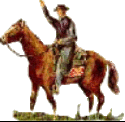|
THE MINUTES OF THE CONFERENCE OF 1744
As Reported in the book entitled "John Wesley the Methodist."
The following are the minutes which provoked the controversy over Calvinism and the split with Lady Huntingdon.
Wesley carefully guarded his own doctrine of Christian perfection from this peril. He considered antinomianism the worst
of all heresies. Most strenuously and persistently did he teach that the profession of justification by faith should ever be tested by right conduct.
"I would not advise to preach the law without the Gospel any more than the Gospel without the law," wrote John Wesley, referring to the so-called Gospel preaching which he disowned. "Undoubtedly both should be preached in their turns; yea, both at once, or both in one." And he sums up the Christian ethics taught by himself and John Nelson in these words: "God loves you; therefore love and obey him. Christ died for you; therefore die to sin. Christ is risen; therefore rise in the image of God. Christ liveth evermore; therefore live to God till you live with him in glory." "So we preached; and so you believed! This is the scriptural way, the Methodist way, the true way. God grant we may never turn therefrom, to the right hand or to the left."
Wesleys intense conviction of the importance of practical morality led him to take drastic measures to rid his society of
antinomian teachers, and their perversions of evangelical truth. But, as Fletcher says. antinomianism had "spread like wildfire" among some of the societies. Most of Wesleys preachers, like John Nelson, never ceased to urge the people to maintain good works. But a few were using the cant phrases and catchwords of a perverted Calvinism. It would be unjust to call the leading Calvinistic clergy antinomians. Wesley did not do so. But the teaching of some of them provided little safeguard against immorality at a time when antinomianism was doing fatal damage to the cause of religion. They held, practically, that since salvation was all of grace through faith, they were not required to maintain good works; their standing in Christ was secured by election, and, clothed in his imputed righteousness, their own righteousness was a matter of indifference. It was not merely a logical deduction on Wesleys part that looseness of life might result from such loose doctrine. He had painful evidence that immorality was the actual result. He claimed the right to deal with the matter in his own Conference of preachers which met in London a month before he death of Whitefield. Hence arose the famous Minute1770, the outburst of a controversy which lasted for eight years, and the publication of Fletchers celebrated Checks to Antinomianism.
The Minute which provoked the new controversy declared: We said in 1744, 'We have leaned too much toward Calvinism. Wherein?
"1. With regard to mans faithfulness. Our Lord himself taught us to use the expression. And we ought never to be ashamed
of it. We ought steadily to assert, on his authority. that if a man is not 'faithful in the unrighteous mammon. God will not give him the true riches.
"2. With regard to working for life. This also our Lord has expressly commanded us. 'Labor () literally, 'work, 'for the meat
that endureth to everlasting life. And, in fact, every believer, till he comes to glory, works for as well as from life.
"3. We have received it as a maxim that 'a man is to do nothing in order to justification. Nothing can be more false. Whoever desires to find favor with God should 'cease from evil, and learn to do well. Whoever repents should do ' works
meet for repentance."
Then followed a review of the whole affair, concluding that "we are every hour and every moment pleasing or displeasing
to God, according to our works; according to the whole of our inward tempers and our outward behavior."
This restatement of doctrine was intended for the preachers, and as a counterblast to antinomianism. Lady Huntingdon and
her Calvinistic friends, however, regarded it as an attack on their doctrine of "imputed righteousness and "justification by faith." Wesley seldom used the former term, on account of its frequent abuse, but the tenor of his preaching for thirty years and his recent sermon on the death of Whitefield ought to have convinced them of his loyalty to the great doctrine of the Reformation, justification by faith.
Lady Huntingdon broke off her friendship with the Wesleys, and declared that she "could burn against" the Minute.
(From IMARC: This debate laid the ground work for John Fletchers "Checks to Antinomianism")
 |
|